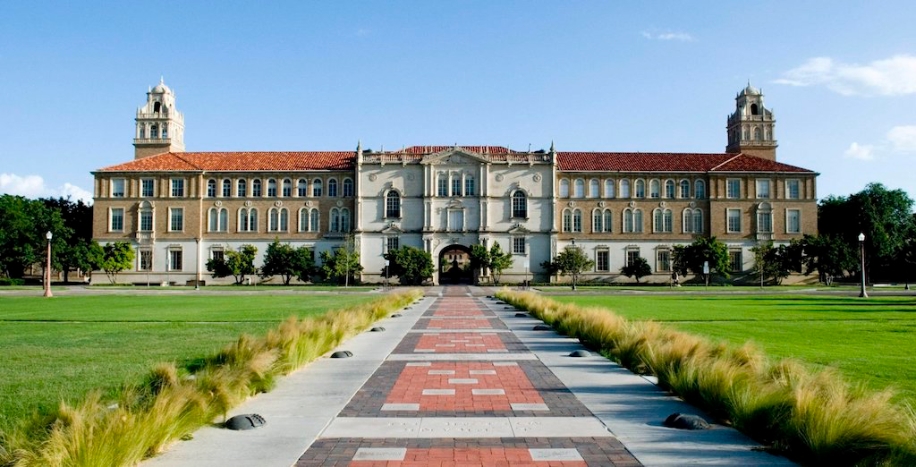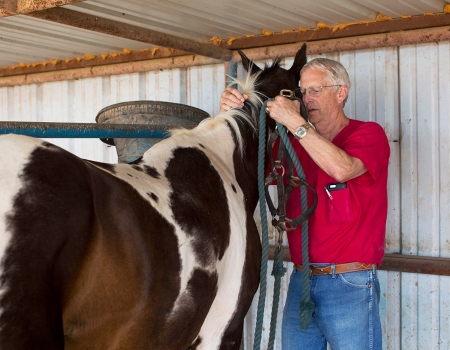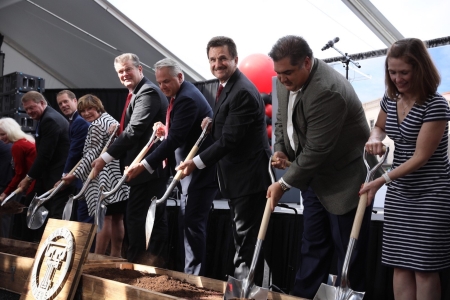Our History

From its beginning in 1923, a core mission of Texas Tech University (TTU; then the Texas Technological College) was to serve the needs of agricultural communities. In 1965 and 1969, Schools of Law and Medicine were established. With continued growth and successes in medical education, research, and service, and with the addition of professional educational programs across the health professions, the Texas Tech University Health Sciences Center (TTUHSC) became a distinct institution. In 1996, the Texas Tech University System (TTUS) was established and now includes TTU, TTUHSC, Angelo State University, and TTUHSC – El Paso, with a combined annual operating budget of approximately $2.2 billion.
TTU is now one of a very select number of universities in the US that is both a Hispanic Serving Institution (HSI) and recognized as a Very High Research Activity (R1) public institution within the Carnegie Classifications of Higher Education. In terms of the TTUHSC, the American Association of Medical Colleges (AAMC) ranks the School of Medicine in the top 10% of all medical programs and as one of the most affordable in the country, and it is ranked 12th nationally for graduating MDs who serve the needs of rural communities. TTUS is now a recognized leader in providing for affordable, high-quality education for Texas' diverse population, and meeting the needs of small, agricultural, and regional communities across Texas and beyond.
As the Texas economy and population has grown, and animal agriculture has continued to expand and modernize, veterinary needs of Texas have evolved and increased. The Texas Higher Education Coordinating Board (THECB; then the Texas College and University System Coordinating Board) met in November 1971 to study and discuss “ways and means to meet the veterinary medical education and service needs of Texas.” The Board voted to approve a TTU proposal to establish a School of Veterinary and Zoological Medicine in conjunction with its newly approved School of Medicine. However, no funds were appropriated, and the approval lapsed in the intervening years.

Since 1971, interest in establishing a veterinary medical program at TTU has ebbed and flowed over the decades. In 2014, the growing need for an additional veterinary medical program to better meet the veterinary workforce and educational demands of Texas, and a desire to broaden life-science research at TTU rekindled interest in a DVM program. Subsequently, as Texas approached a population of 30M people, the THECB released a report, Veterinary Medical Education in Texas: An Update (July, 2016) in which the Board adopted a recommendation to: “Consider a proposal for a new college of veterinary medical education that is designed to specifically produce large animal veterinarians in an innovative, cost efficient manner that does not duplicate existing efforts.” With a $4.17M State appropriation for the FY18-19 biennium, TTU conducted a thorough feasibility assessment, and began planning and development efforts in earnest.
This expands on the THECB recommendations in that continued maldistribution of veterinarians has resulted in growing veterinary workforce shortages in rural, agricultural, and regional communities across the breadth of the vast non-urban areas of Texas. This need is particularly pronounced for primary-care veterinarians who provide care to the major domestic species including companion-animal and mixed-animal practitioners, and those veterinarians who deliver individual and population health care for large animals (including horses and food and fiber animals). A second need that TTU intends to address – and in many respects, of equal importance to the need for veterinary services – is to increase access to affordable veterinary medical educational opportunities for Texans.
In September, 2018, the THECB provided confirmation of the creation of the TTU School of Veterinary Medicine (SVM) and added the School to our official program inventory. Then in May, 2019 after a robust debate of the needs assessment, the state legislature appropriate $17.35M to TTU and directed the institution to undertake the steps necessary to open the SVM for students. Thereafter, the Governor signed the appropriation and the THECB – once again – authorized TTU to implement the DVM degree. This time, however, the approval was accompanied by the necessary legislative funding. The School's timeline includes welcoming the inaugural class in the fall of 2021 (fifty years after TTU was initially approved to administer the DVM program).

School of Veterinary Medicine
-
Address
7671 Evans Drive, Amarillo, Texas 79106 -
Phone
806.742.3200 -
Email
SVM@ttu.edu
